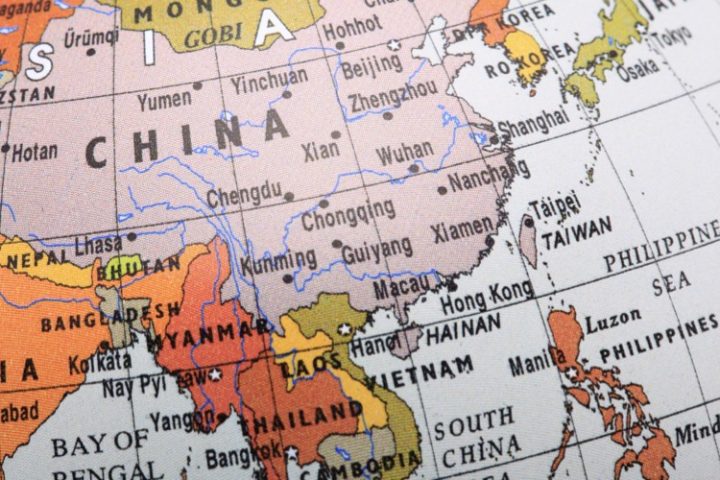
The Philippines and China will set up direct communication between their foreign ministries to prevent “miscalculation and miscommunication” in the fiercely contested South China Sea, Manila said on December 29 last year.
The deal will be inked during Philippine President Ferdinand “Bongbong” Marcos’ visit to Beijing in January 2023 when he will convene with Chinese leader Xi Jinping, a foreign ministry official revealed.
Marcos, who is the son of a former Philippine president, has reiterated that he would not permit China to infringe on the Philippines’ maritime rights in the sea — a stark juxtaposition with his predecessor Rodrigo Duterte, who was hesitant to lambast China.
In December, the Philippines also instructed its military to enhance their presence in the disputed waters following a report that China had begun reclaiming various unoccupied land features around the Spratly Islands.
According to Bloomberg reports citing satellite images from U.S. officials, new land formations had sprung up in the Spratlys, on Eldad Reef, Whitsun Reef, Lankiam Cay and Sandy Cay before they were captured by the satellites.
The news stated that China had reiterated its position in the South China Sea by ripping up thousands of hectares of reef to construct new land for man-made islands in the Spratly archipelago.
The militarized islands contain runways, ports, and radar systems.
In response, China’s foreign ministry deemed the report “completely groundless.”
“To avoid miscalculation and miscommunication in the West Philippine Sea, both sides have agreed to sign an agreement establishing … direct communication between the foreign ministries of both countries at various levels,” declared Neal Imperial, Philippine assistant secretary for Asian and Pacific affairs.
Manila calls the waters immediately west of the Philippines as the West Philippine Sea.
Imperial said the expected deal in January would formalize “procedures” for contact between the two countries when a dispute emerges.
“Before it could be a waiting game,” he said.
“It could be the AFP (Armed Forces of the Philippines) doing it, could be other formal … contacts.”
Just like its claims on the democratically ruled island of Taiwan, Beijing asserts sovereignty over almost the entire South China Sea and has disregarded an international court ruling that its claims have no legal grounds.
Additionally, the Philippines, Vietnam, Malaysia and Brunei have overlapping claims to parts of the South China Sea.
During his talks with Xi and other top leaders, Marcos would “continue to uphold our country’s sovereignty”, Imperial said.
“The president wants a peaceful and stable situation in the West Philippine Sea,” he added.
Up to 14 bilateral agreements are poised to be concluded during Marcos’ January 3rd to January 5th visit to China, amid rising Covid-19 cases in the communist country.
Hence, Imperial disclosed that Marcos and his team, including former President Gloria Arroyo, senior ministers, and business leaders, would travel in a “bubble” to decrease their vulnerability to infection.
Earlier in December last year, government officials in the Philippines ramped up their criticisms on Beijing’s latest incursions in the South China Sea, following Chinese vessels swarming parts of the disputed waters in early December. The Chinese presence in the disputed waters came only weeks after a clash between the Philippine Navy and the Chinese Coast Guard.
Senior Undersecretary Jose Faustino Jr, officer-in-charge of the Philippines’ Department of National Defence (DND), announced that it was intolerable for Chinese militia boats to be around Iroquois Reef and Sabina Shoal.
These aforementioned areas are situated within the contested Spratlys archipelago in the eastern part of the South China Sea that fall within Manila’s exclusive economic zone (EEZ).
In 2016, the Philippines emerged victorious in an arbitration case before an international tribunal in The Hague, Netherlands. The tribunal rejected Beijing’s broad claim over the South China Sea and determined that Manila has sovereign rights over the waters within its EEZ.
Unsurprisingly, Beijing rejected this ruling.
Clips from local TV station GMA-7 depicted several Chinese vessels still hovering around Iroquois Reef and Sabina Shoal.
Faustino maintained Marcos’ earlier command for the DND “not to give up a single square of Philippine territory”.
“Our lines remain open to dialogue. However, we maintain that activities which violate our sovereignty, sovereign rights and jurisdiction, and undermine the peace and stability of the region, are unacceptable,” Faustino said.
Philippine senators passed a resolution voicing the chamber’s distaste towards China over a previous sea encounter involving rocket debris that the Philippine Navy discovered floating off the coast of Thitu Island, which is also part of the Spratlys archipelago.
Senator Francis Tolentino, during a speech, featured a video depicting a Philippine Navy rubber boat transporting rocket debris back to shore and Chinese Coast Guard members on a larger inflatable boat cutting the towing line.
Calling out in broken English, a Philippine Navy officer could be heard off-camera attempting to deter the Chinese, who failed to respond and proceeded to gather the rocket debris.
“These actions… are slowly but surely eroding Philippine sovereignty in the West Philippine Sea and harming the country’s strategic position,” said Tolentino.
Besides, Senator Loren Legarda accused China of bullying.
“We are mad at what you are doing to our troops. That is simple bullying. We cannot tolerate that act to happen again,” she said.
Senate President Juan Miguel Zubiri subsequently tabled a motion to pass a resolution to express the body’s “disgust on what had transpired in this particular incident”. The Senate unanimously voted “yes”.
Since coming to power last year in June, Marcos has been maintaining a delicate balancing act between the US and China in light of the two superpowers’ rising competition for clout in Southeast Asia.
Marcos has replaced his predecessor Duterte’s pro-China approach with a more nuanced foreign policy that rejuvenates relations with longstanding military ally Washington while also pursuing better economic relations with Beijing.
Analysts contend this “friends to all, enemies to none” strategy could possibly witness the Philippines benefitting from security and trade from both nations, while also gaining more bargaining power as the US and China compete for Manila’s allegiance.
For instance, during the November clash between the Philippine Navy and the Chinese Coast Guard, Marcos maintained the Philippine Navy’s claim that the Chinese Coast Guard “forcibly” took debris from a Chinese rocket launch they discovered floating off the coast of Thitu Island.
John Bradford, senior fellow in the Maritime Security Programme at the S. Rajaratnam School of International Studies (RSIS), observed that such an approach places Marcos in a “good position” ahead of his state visit to Beijing in January 2023.
“He can arrive with a fresh grievance, to show how the relations between the Philippines and China need to be righted in favor of a more conciliatory approach towards the Philippines. And he’s backed by what was recently a successful interaction with the United States,” said Bradford.



